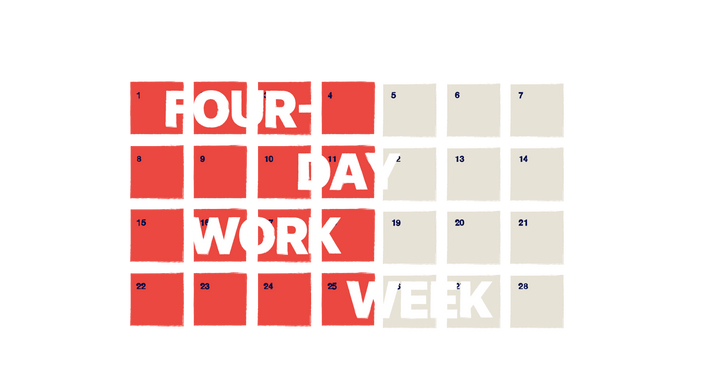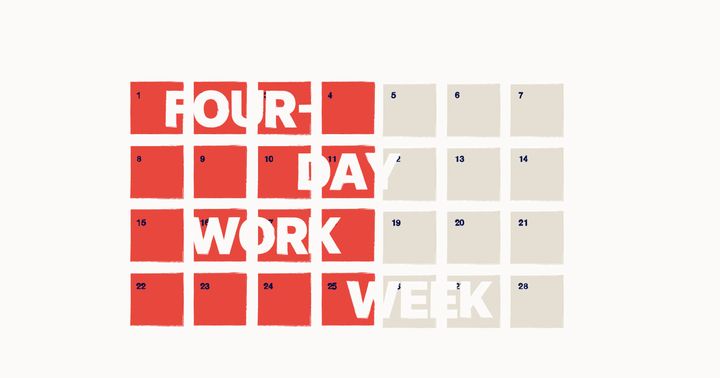The Benefits of a Four-Day Workweek

We’d all like to work less, right? But what if working less actually meant achieving more?
The idea of a 4-day workweek isn’t new, with a movement advocating for a reduced workweek dating back to the 1970s, but it is a hot topic of debate again in 2021 as companies contemplate the future of work. With the global pandemic forever changing our ideas of the office, why can’t we take this opportunity to also reconsider our ideas of a standard working schedule?
Bridging the gap between execution and humanity in business is the goal of Conscious Culture, and the “humanity” side of that goal means acknowledging that your team members are human. Improving things for everybody in the world of work shouldn’t be a radical, fringe idea. Adopting a four-day workweek has numerous benefits for both employees, employers, and the environment. A four-day workweek for office workers is the true definition of a Win-Win Partnership.
What are the benefits of a four-day workweek?
Some of the benefits of moving to a four-day workweek include:
- A better work/life balance for employees
- Increased productivity when at work
- Easier to recruit and retain good employees
- Environmental benefits
A better work/life balance for employees with a four-day workweek
The 90s taught us that work should be a “sacrifice” but the truth is that work doesn’t need to come at the cost of one’s personal life. A Conscious Culture is designed to help you prosper as a human being and experience exceptional personal growth through work as the vehicle.
Part of having a Conscious Culture within your organization means helping your employees prioritize the life part of the work/life balance. People do their best work when they’re supported, respected and rested. Simply piling more hours and more tasks onto an already stretched schedule is the quickest way to burn out your workforce.
By giving your company one extra day a week to “get life done” you’re showing a commitment as a company to your employees as humans. And team members prefer it. Perpetual Guardian, a company based in New Zealand, found staff reported a 24% improvement in work-life balance after moving to a four-day workweek in 2018.
If you were to ask employees what they would do with an extra day off each week the answers are unsurprising. See family and friends, learn new skills, exercise and get outdoors. Nobody is able to operate at one hundred, 100% of the time. An extra day to invest in themselves ultimately makes your workforce happier.
Increased productivity when at work due to a four-day workweek
When Bolt decided to trial a four-day workweek as an experiment, the company took a chance on the idea that working less would actually mean achieving more. Founder and CEO Ryan Breslow shared his thoughts on the four-day workweek on the company website:
“Here’s what many of us know but can be tough to admit: Work will fill the space you give to it. My bet is that we’re going to become vastly more efficient from Monday to Thursday. We’ll trim those excess meetings; we won’t send unnecessary communications. Because we’ll have less time, we’ll get more concrete work done.”
And the data backs up his bet. Microsoft Japan reported that a four-day workweek boosted productivity by 40% when they trialed the scheme. Moving to a four-day workweek may also help decrease “presenteeism;” the name given to performative labour, when employees are present but not productive at work.
Moving away from the idea that work is measured by time at desk (often called “bums on seats” management on the internet) and toward rewarding tangible output is the first step in a Conscious Culture revolution. And what better place to start than by introducing a 4-day workweek.
Easier to recruit and retain good employees with a four-day workweek
With many tech companies going remote first and hiring employees around the country, continent, and even world, employees are spoiled for choice when it comes to finding their next gig. With workers having their pick of jobs, companies need to find other ways to be competitive in their market and attractive to new hires.
Compensation isn’t just how much you pay an employee; though competitive and fair pay is important. A full conscious compensation package takes into consideration pay, benefits such as insurance or equity, work perks like office amenities or catered lunches; and, increasingly, the amount of hours employees are expected to work.
Being able to offer a four-day workweek can give companies the competitive edge when looking to recruit top talent. U.S. burger chain Shake Shack reduced managers' working weeks in some U.S. stores and found that recruitment actually spiked, especially amongst women.
Flexible working requests can be the make or break when it comes to retaining employees. Outside of employees just looking for a better work/life balance; flexible and reduced working schedules are important for enabling parents, caregivers, those experiencing mental or physical illness and disabled people to continue to thrive in the workplace.
Environmental benefits of the four-day workweek
Alongside the benefits for employees, moving to a reduced workweek is great for the environment too. A working day doesn’t just impact the teammates within a company, it also impacts the wider community. If an employee commutes into an office they might be adding more cars to the road, or increasing the amount of users on public transportation. The employee uses extra electricity to power their computer, lights, and office equipment during the workday. Plus if the employee buys lunch or coffee out, there is an environmental impact there too.
Cutting down on commuting, even once a week, can drastically help reduce carbon emissions. A 2021 report estimated that if the entire UK moved to a 4-day workweek, the country could reduce its carbon footprint by 21.3% per year. The same report also shows that a reduced workweek can decrease consumption of electricity as well as improve an employees household carbon footprint. When teammates take an extra day off, they tend to switch to ‘soft carbon output’ activities like reading, home cooking, or exploring the outdoors.
There are also positive impacts on society, as people use their extra day to give back to their communities through activities like volunteering, gardening, and investing in personal education and hobbies.
Is a four-day workweek the future of work?
When it comes to the future of work, it seems likely that some form of reduced, flexible, or compressed work schedule is the way forward; with companies like Bolt and Shake Shack making 4-day workweeks a permanent fixture, and many more offering temporary reduced schedules during summer.
It seems hard to argue against the benefits a four-day workweek brings for employees, companies, and the environment, though undoubtedly some old fashioned, non-conscious companies may try. But ultimately the things that are best for your business are also best for your employees, and a four-day workweek is what is best for employees.




